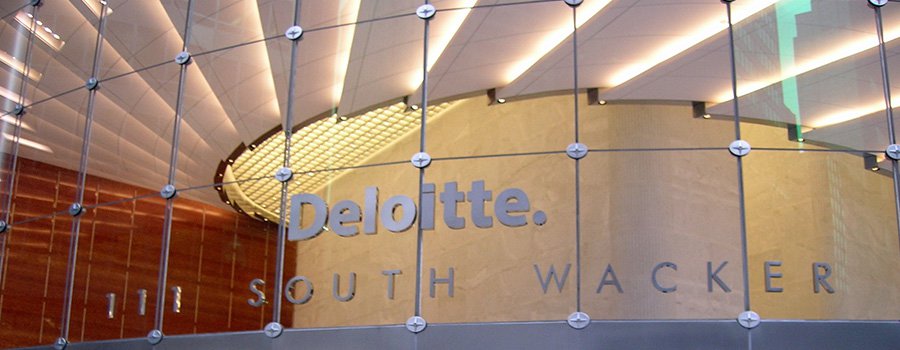It’s Much Too Soon to Regulate Bitcoin, Says Deloitte Exec
Jon Watts, director of enterprise services at Deloitte, has weighed in on Bitcoin regulatory issues with clear and cogent arguments. Watts’ thesis is that Bitcoin is at the crossroads, and the race to regulate it could be happening much too soon.
Deloitte is a professional services firm headquartered in New York. Considered one of the Big Four auditory firms along with PwC, Ernst & Young, and KPMG, Deloitte is the second-largest professional services network in the world by revenue and largest by the number of professionals. The company provides audit, tax, consulting, enterprise risk and financial advisory services with more than 200,000 professionals in more than 150 countries.
Watts, based in the New York office, is a core member of Deloitte’s Capital Markets Technology practice and a national leader of the U.S. Foreign Account Tax Compliance Act (FATCA) service offering. The reputation of Deloitte should ensure that Watts’ advice on Bitcoin regulation is taken into account by regulators and policymakers.
“The Bitcoin ‘blockchain’ is a fundamental breakthrough in computer science that solves what seemed to be an unsolvable problem: how to ensure that a digital transaction happens only once,” notes Watts. “Yet there is a critical question that is hanging over Bitcoin, potentially slowing the pace of innovation, and adoption, i.e., how will Bitcoin be regulated?”
Watts argues that global policymakers and regulators should consider giving Bitcoin more time to develop before insisting on regulation. Other key technology innovation such as the telephone, airplanes, radio, mobile phones, and the Internet, were given much more time to develop before coming under serious regulatory supervision.
“In fact, serious efforts to regulate disruptive technologies have traditionally been a function of the technology achieving mass adoption,” says Watts. Overwhelming regulatory supervision of Bitcoin is happening much too soon, only six years into the development of Bitcoin and “a long way away from the time it has typically taken for new technologies to achieve mass adoption in the past.”
In fact, Bitcoin is still very far from mass adoption, and represents but a very small fraction of the global economy. Though Bitcoin is all over the press – albeit often with shallow and sensationalist coverage – and venture capital investments in the Bitcoin space are taking off, only a tiny minority of people own bitcoin and use it to pay for goods and services.
“The highest daily dollar volume for Bitcoin transactions globally in February 2015 was less than $57 million, which is less than 1 percent of the average daily transaction volume for credit card platforms as measured in 2012,”notes Watts. Therefore, Bitcoin adoption is not yet skyrocketing with such a disruptive speed to warrant panic regulatory interventions.
Another important argument is that we could be still very far from real products that can generate true demand for Bitcoin-related services from mainstream consumers. In fact, Bitcoin’s most valuable and important uses may have yet to be invented. Watts notes that Bitcoin is much more than just digital money – its real value is the ability of blockchain technology to establish trust between parties who don’t know each other.
That, Watts notes, may very well change how people live and interact. “Bitcoin is likely to follow a path where one innovation leads to another and ultimately, the very products, services, and capabilities that were once difficult or impossible to imagine, become necessities in our daily lives,” he said.
Watts worries that policymakers and regulators, in looking to protect the public from all of the bad outcomes we might anticipate today, could “end up stifling the myriad (as yet) unimaginable capabilities that could potentially change the world for the better.”
His concluding recommendation is that American industry groups, policymakers and regulators should collaborate and consider whether the United States should be the country that provides the most supportive environment for Bitcoin-related innovation.
The post It’s Much Too Soon to Regulate Bitcoin, Says Deloitte Exec appeared first on Bitcoin Magazine.



